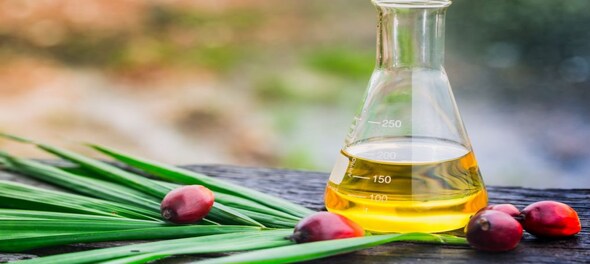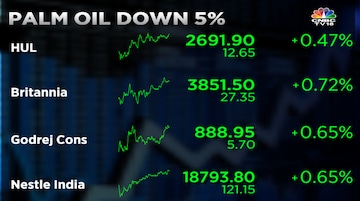
The prices of palm oil, the world’s most consumed cooking oil, slumped 5 percent on Wednesday, September 28, falling to the lowest levels since January 2021. The prices have fallen as much as 25 percent in the last month.
Here's what's hurting the prices
Indonesia’s banned the export of palm oil from April 28, resulting in a surge in edible oil prices. Edible oil rose to its highest prices ever — around 45 percent higher than its previous highs recorded in 2008 and then in 2011.
The ban was later scrapped, and Indonesia started waiving export levies.
Palm oil is the most consumed cooking oil in the world, accounting for 40 percent of global consumption, followed by soyabean oil at 32 percent and canola oil at 15 percent. Palm oil accounts for nearly 60 percent of global vegetable oil shipments, and top producer Indonesia accounts for around a third of all vegetable oil exports.
During the three-week export ban, Jakarta's stocks ballooned to 6.69 million tonnes by end-June from around 4 million tonnes at the end-2021, back to 4.5 to 5 million tonnes by end-September. The government increased shipments to help bring down the stocks.
The government was aiming to bring down local edible oil prices but, in the process, caused world prices to surge, hitting a record 7,268 Malaysian ringgit ($1,598) per tonne.
Producers in Malaysia, the second-largest palm oil producer, along with rival oils like soy oil and sun oil, rushed in to grab Indonesia's market share. Malaysia has also displaced Indonesia so far in the 2021/22 marketing year to end-October as the top palm oil supplier to India, according to SEA data.
Indonesian producers are now taking back business from their Malaysian neighbours with aggressive discounting. Indonesian Trade Minister Zulkifli Hasan also urged India to buy more palm oil from his country when he visited India last month, Reuters reported quoting a senior industry official who attended the minister's meeting with Indian buyers.
Here's how the drop affects Indian FMCG companies

Nilesh Shah, Envision Capital, told CNBC-TV18 that cooling palm oil prices are good for select FMCG companies. “Just about three, four months back, we were talking about how palm prices were raging. But clearly, the fall has been sharper than expected. So, this is extremely good news, especially for some of the consumer-facing companies," Shah said.
"I believe that commodity prices can fall a lot more than they have. And that could be a hugely positive surprise for India and Indian companies,” Shah added.
India imports around 10.5 lakh tonnes of edible oil a month and finished FY22 with an import of 13 lakh tonnes, down from 15 lakh tonnes the previous year. India’s import bill for edible oils in FY22 jumped to Rs 1.4 lakh crore, up 72 percent from Rs 82,123 crore in FY21.
First Published: Sept 28, 2022 12:38 PM IST
Check out our in-depth Market Coverage, Business News & get real-time Stock Market Updates on CNBC-TV18. Also, Watch our channels CNBC-TV18, CNBC Awaaz and CNBC Bajar Live on-the-go!


BJP MP's wife challenges him in electoral battle for Etawah seat
Apr 25, 2024 9:39 AM
Lok Sabha Election 2024: Gurugram gears up for crucial polls amidst economic boom and civic woes
Apr 24, 2024 11:41 PM
Lok Sabha Election 2024: Crucial seats up for grabs as Rajasthan, Maharashtra, Bihar gear up for 2nd phase of polls
Apr 24, 2024 11:40 PM
View | A small inheritance tax is not a bad idea
Apr 24, 2024 10:04 PM

